Korean fir "Molly": description, planting and care rules
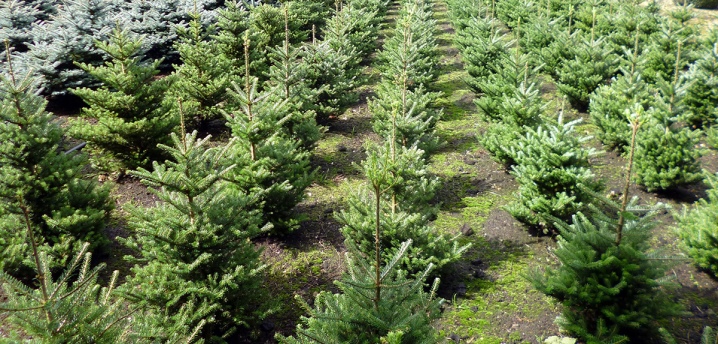
Many gardeners dream of decorating their site with evergreen miniature trees. These include the Korean fir "Molly". The tree of the Pine family is a long-liver. Thanks to its dense and fluffy needles, "Molly" is able to form a hedge. Also, the plant looks beautiful in single plantings.
Appearance
Starting the description of the Korean fir "Molly", we note that the ephedra is able to grow in open areas and at home.
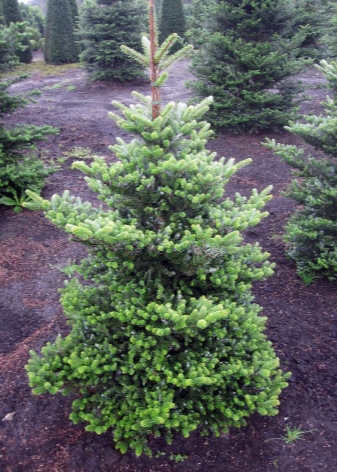
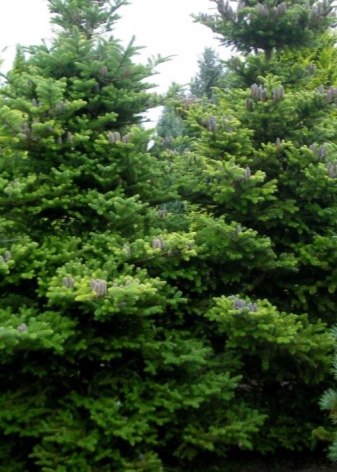
The characteristic features of the plant include the following.
- A wide crown in the shape of a cone.
- Long life expectancy. A dwarf species of the Pine family lives for over 200 years. There are also individuals whose age reaches 300 years.
- Color change. Young trees have gray bark. However, as it matures, the trunk of the tree turns brown with a reddish tint.
- Dense needles of rich green color with glossy highlights. Ephedra branches are directed upwards. Molly fir cones have an amazing lilac color, which eventually turns dark brown. They ripen in the first year of life.
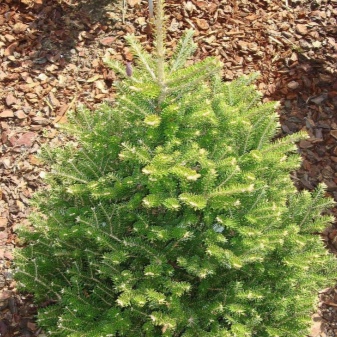
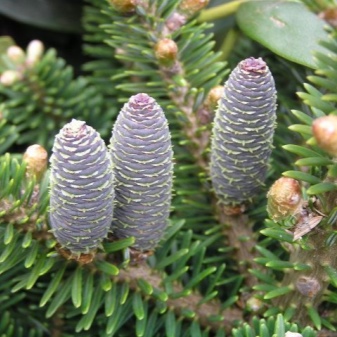
The decorative appearance of the Molly Korean fir does not require regular pruning. The structure of the ephedra allows you not to "lose shape" for a long time. Experienced gardeners advise planting Korean fir in open, sunny areas. The ephedra does not tolerate shade well: the trunk of the plant begins to deform. Also, this variety is picky about the condition of the soil. He experiences discomfort from an excess of moisture or, conversely, from a lack of it. Molly suffers from dry summers and needs regular watering.
The soil should be fertile and well-drained. In addition, the Korean fir "Molly" reacts negatively to temperature changes.
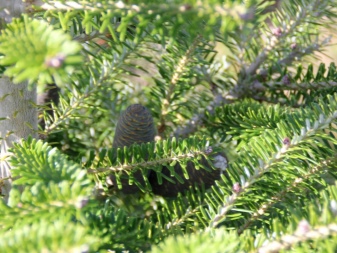
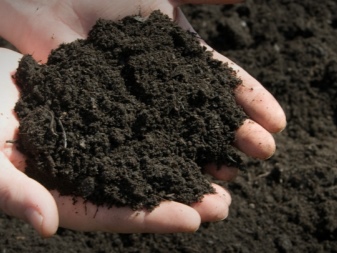
Planting and leaving
Korean fir is planted in late summer and early autumn. The tender root system of a young ephedra should take root before the onset of frost. Prepare in advance for planting a dwarf variety of the Pine family. So, the rules for planting Korean fir are as follows.
- A hole is dug in the garden area (at least 60 cm). The size of the hole is adjusted depending on the size of the seedling.
- The planting hole is left for 2-3 weeks in order for the soil to shrink.
- The bottom of the pit is watered abundantly, the soil is dug up and a drainage layer is laid out.
- The pit is covered with a mixture of soil, sand and peat. Fertilizers are also added.
- Three weeks later, they start planting a fir seedling. For this, the pit is covered with soil, creating a small hill. The roots are covered with a substrate, carefully compacting.
- The seedling is watered abundantly with water.
- For group planting, the distance between seedlings should not be less than 2 meters. In the early days, the seedling is watered abundantly. It is hidden from the sun's rays under bags or caps made of thick paper.
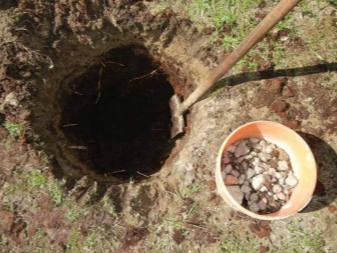
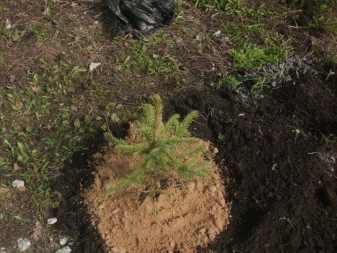
Careful control is necessary for a young tree. First of all, regular watering and loosening of the soil is important. Also, do not forget about sanitary pruning and pest control. Korean fir "Molly" welcomes sprinkler irrigation. This procedure is especially relevant in dry summer.
Do not forget about soil mulching. For these purposes, dry foliage or peat is suitable. The plant is fertilized once a year using mineral complex fertilizers.
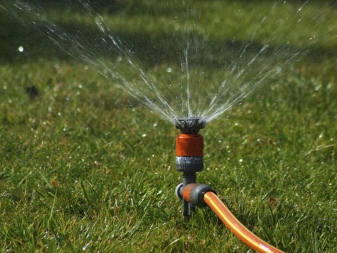
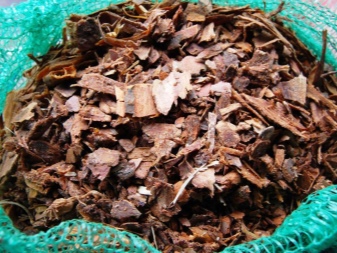
Reproduction
The process of growing fir is quite long and laborious. Propagated by "Molly" seeds, cuttings and layering.For the first method, it is enough to find an unripe bud and store it in a dry place for some time. Then the seeds are removed from it and placed in a cool place (refrigerator or basement). They are planted in a special container filled with a mixture of turf and sand. After a year, the seedlings can be planted in a permanent place in the garden.
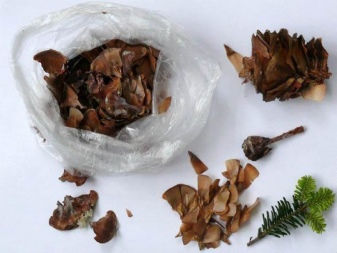
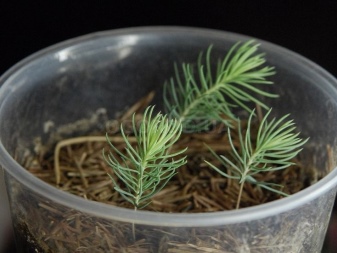
With regard to cuttings, this method is suitable for experienced gardeners. From the parent tree, shoots with an apical bud are torn off, and placed in a container with fertile soil. It is advisable to cover the box with the branches with a transparent lid and keep it warm. The plant needs daily ventilation. Reproduction of fir using cuttings is a rather slow process. The ephedra root system takes 7-9 months to form.
An important nuance: shoots growing on the northern side of the tree trunk are suitable for cuttings.
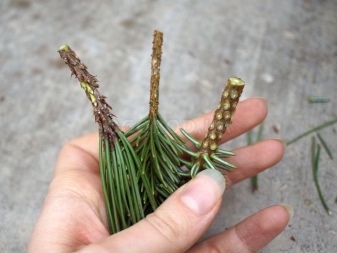
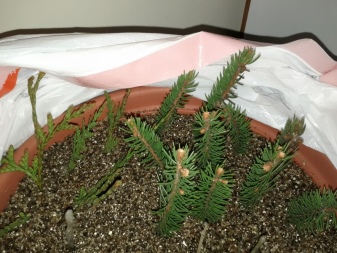
For propagation by layering, healthy young shoots of Korean fir are used. The process is as follows: in the spring, they are bent to the ground and fixed with a metal wire, furrows are preliminarily created (at least 5 cm deep).
Careful care is required for layering. It involves watering, weeding, mulching with peat or dry foliage. After a couple of years, the ephedra is separated from the "mother" tree and transplanted to a permanent place. This method is characterized by the curvature of the crown of a young ephedra.
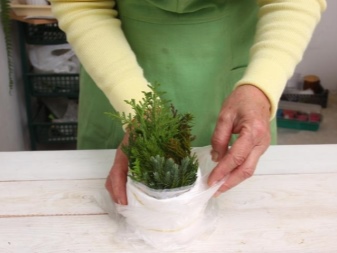
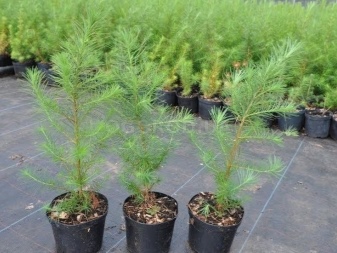
The Korean fir "Molly" is widely used in landscape design. An amazing ephedra with lilac cones looks great in single compositions and group plantings. Miniature varieties will decorate a small estate.
The Molly variety goes well with juniper and other coniferous crops.
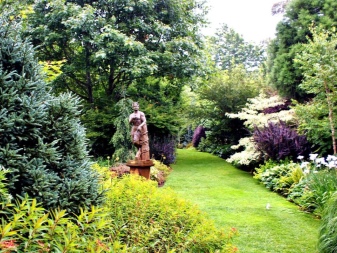
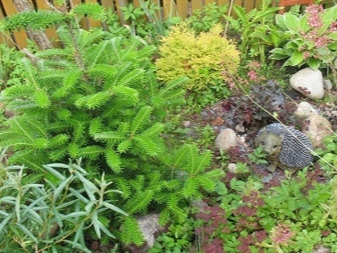
See below for proper planting and caring for fir.



































































The comment was sent successfully.